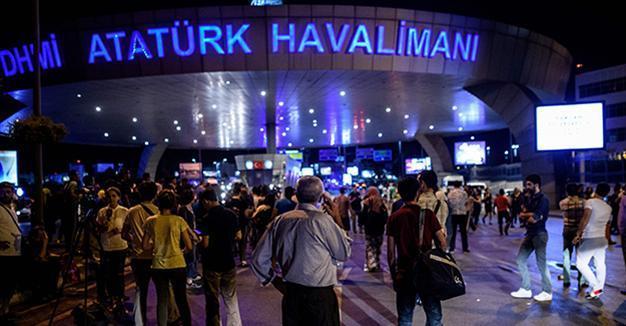Terror shakes Istanbul hours after Turkey’s big diplomatic campaign to mend Russia, Israel ties
Ali Kayalar – ISTANBUL
 Another terror attack shook Turkey late on June 28, just as the country has launched a multifaceted diplomatic move to mend its broken ties with both Israel and Russia following major disputes.
Another terror attack shook Turkey late on June 28, just as the country has launched a multifaceted diplomatic move to mend its broken ties with both Israel and Russia following major disputes.At least 36 people were killed, according to Turkish Prime Minister Binali Yıldırım, in the attack on Istanbul Atatürk International Airport, the biggest in the country, by at least three militants.
Less than a day before the attack, Turkey and Israel inked a deal to normalize ties after six years of mutual distrust stemming from an Israeli commando raid on the Mavi Marmara aid flotilla in May 2010 that killed 10 pro-Palestinian Turkish activists who were attempting to breach Israel’s Gaza blockade. Officials from both countries said both sides would benefit from the deal.
President Recep Tayyip Erdoğan sent a letter to his Russian counterpart, Vladimir Putin, on June 27 to express his deep sorrow over the downing of a Russian warplane last year for violating Turkish airspace during operations in Syria. Russia responded positively to the efforts, and tour operators from both countries hailed the discussions which appear set to be bear fruit.
Moreover, also just a day before the attack, Prime Minister Binali Yıldırım announced that the country was ready to normalize ties with Egypt which deteriorated after a military coup staged by Egyptian President Abdel Fattah el-Sisi in July 2013 against President Mohamad Morsi. The overthrow of the Muslim Brotherhood member drew strongly worded statements from Erdoğan, who was prime minister at the time.
Analysts have already started to compare the airport attack with several ones in the past year, including the deadliest one in the country’s history, the Ankara bombing carried out by Islamic State of Iraq and the Levant (ISIL) militants on Oct. 10, 2015, at a peace rally in the nation’s capital.
The timing of the June 28 bombing not only overlaps with Ankara’s diplomatic campaign to mend ties with the region’s other powers, but also some other major moves against the jihadist ISIL, which is a threat to the country’s borders.
A total of 36 suspects in the deadly ISIL bomb attack in Ankara last year are facing up to 11,750 years in jail, according to an indictment finalized by the Ankara Public Prosecutor’s Office on June 28.
The indictment listed ISIL militant Yunus Emre Alagöz and an unnamed Syrian militant as the suicide bombers who committed the attack. Alagöz’s brother, Abdurrahman Alagöz, committed an attack in Suruç in the southeastern province of Şanlıurfa on July 20, 2015, killing 33 young activists.
Turkey also recently changed its military rules of engagement to allow NATO allies to carry out more patrol flights along its border with northern Syria against ISIL, Reuters quoted a Turkish official as saying on June 28.
Analysts have not ruled out the possibility that such a large attack could also be carried out by the Kurdistan Workers’ Party (PKK), citing the recent military campaign against the outlawed group in several provinces in the southeast.
Regardless of the identity or goals of the terrorist group behind the airport attack, it leaves no room for doubt that the bombing targets Ankara’s peace efforts – if it is not a direct response to it.
















